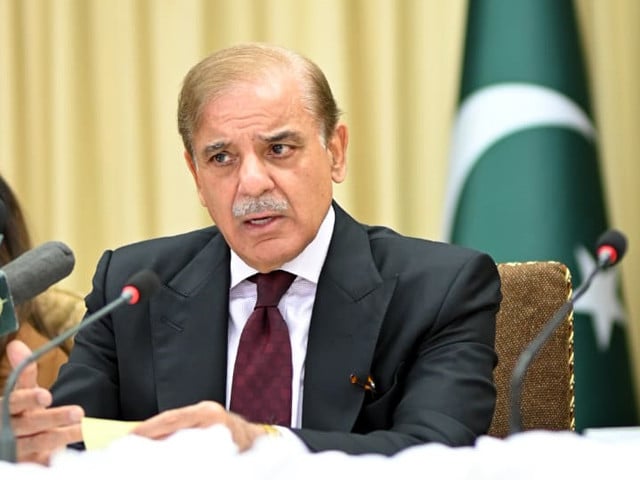Prime Minister Shehbaz Sharif reached Azerbaijan on Thursday for a two-day official visit to participate in the 17th Summit of the Economic Cooperation Organization (ECO), where he will present Pakistan’s vision for enhanced regional integration and climate resilience.
The summit, taking place from July 3 to 4 in Khankendi under the theme “New ECO Vision for a Sustainable and Climate Resilient Future”, gathers heads of state and government from ECO member nations to deliberate on pressing regional issues including trade, energy cooperation, climate change, and connectivity.
Accompanying the prime minister are Deputy Prime Minister and Foreign Minister Ishaq Dar, Federal Information Minister Attaullah Tarar, and Special Assistant to the Prime Minister Tariq Fatemi.
Upon his arrival at Fuzuli International Airport, PM Shehbaz was warmly received by Azerbaijan’s Minister of Culture Adil Karimli, Azerbaijan’s Ambassador to Pakistan Khazar Farhadov, Pakistan’s Ambassador to Azerbaijan Qasim Moinuddin, and other senior diplomatic and government officials.
According to the Foreign Office, Prime Minister Shehbaz will address the summit to present Pakistan’s perspective on regional and global developments. He is expected to reaffirm Pakistan’s commitment to the ECO Vision 2025, emphasizing the need for stronger intra-regional trade, improved transport connectivity, enhanced energy cooperation, and sustainable development.
The visit will also include bilateral meetings with fellow ECO member state leaders to explore avenues for deepened economic collaboration, climate adaptation, and regional peacebuilding.
The ECO, which evolved from the Regional Cooperation for Development (RCD) founded in 1964, was formally established in 1985 and now comprises ten member countries across South Asia, Central Asia, and the Middle East.
In recent years, Pakistan has been a vocal advocate for global climate justice, often highlighting its heightened vulnerability to climate change despite contributing less than one percent to global carbon emissions.
The prime minister is expected to address this imbalance in his speech, calling for greater international support for climate-vulnerable nations. Pakistan’s experience with climate-linked disasters has intensified in recent years, most notably the 2022 floods that impacted over 33 million people, claimed more than 1,700 lives, and caused over $30 billion in damages and economic losses.
Pakistan continues to push for greater global awareness and regional solidarity on climate mitigation and adaptation, stressing the urgency of collective action in the face of accelerating environmental threats.
























